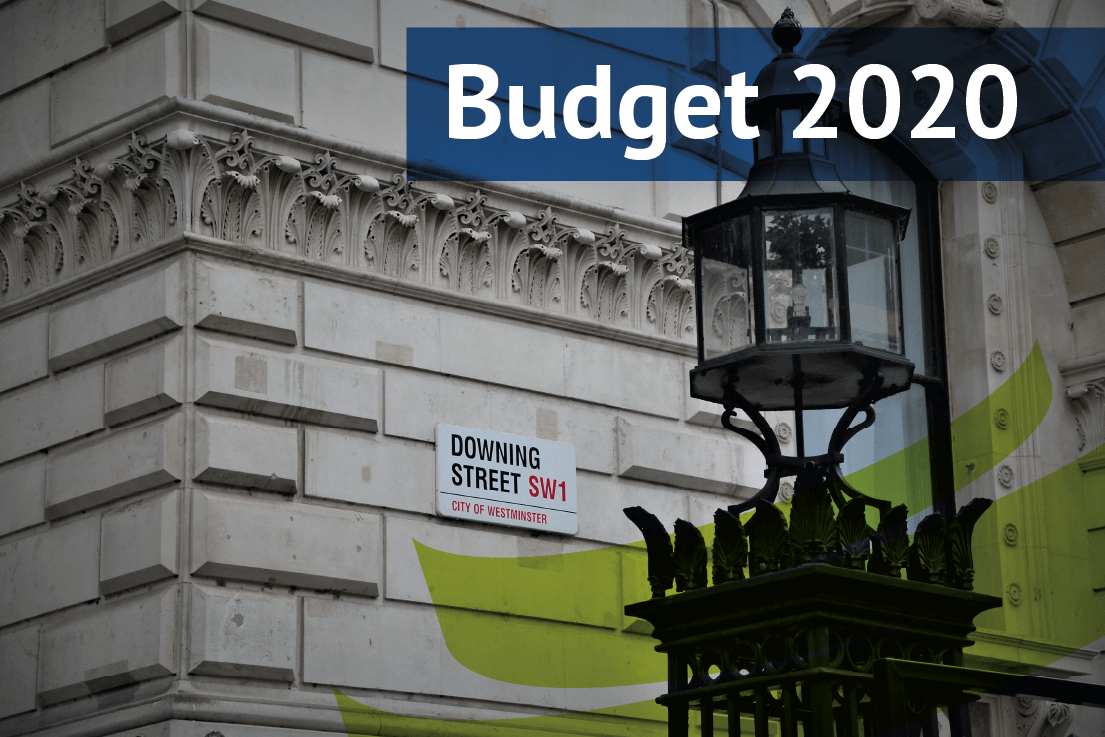Budget 2020
17th March 2020
The UK’s new Chancellor, Rishi Sunak, finally delivered the Government’s delayed Budget for 2020 on March 11th. As you will undoubtedly already be aware, it was dominated by increased spending and temporary measures designed to support the NHS and businesses through the COVID-19 (coronavirus) outbreak. However, there were also some interesting tax changes which will affect both individuals and businesses.
We’ve summarised the key points and what they mean for you and your business below – and we’ll of course give you more information on these ahead of them becoming law. You can also read our guide detailing the support available for businesses affected by coronavirus.
Budget 2020 summary
Coronavirus
The Government announced a number of temporary measures to deal with the impact of the coronavirus. In particular, it sought to provide support for smaller businesses and their staff.
- The Government will refund statutory sick pay (SSP) paid to employees absent due to coronavirus for up to two weeks for firms with less than 250 staff
- SSP will be paid to employees from the first day of absence, rather than the fourth day
- These rules apply to all staff self-isolating in line with Government guidelines, regardless of whether they have taken a test
- There will be a dedicated “Time to Pay” helpline offering support to businesses struggling to pay their tax bills due to coronavirus
No business rates for small businesses
A reduction in business rates represents another break for small businesses in wake of the coronavirus outbreak. Businesses with a rateable value of below £51,000 will be totally exempt from paying business rates in the coming financial year. These firms will also be eligible for a grant of up to £3,000 from a hardship fund, which will be managed by local authorities.
Income tax rates unchanged
As expected, changes to income tax are minimal for 2020/21, with almost all rates and thresholds remaining the same – the first time in a decade that Personal Allowance has not increased. This means that thresholds will remain at the following levels:
- Personal Allowance: £12,500
- Basic Rate: £37,500
- Additional Rate: £150,000
There will be two small changes in the form of modest increases to Married Couple’s Allowance (£30,200) and Blind Person’s Allowance.
Entrepreneurs’ relief restricted
Perhaps the biggest tax change is to entrepreneurs’ relief, a tax relief which offers a preferential capital gains tax rate of 10% to those selling their business.
The maximum lifetime claim has been dramatically reduced – from £10 million to £1 million. The change applies with immediate effect.
The Chancellor stopped short of abolishing the relief entirely, despite pressure from some quarters, but said it was costly to the Government and only benefits a small minority of taxpayers.
IR35
As expected, the Chancellor confirmed that plans to extend off-payroll working rules (IR35) to the public sector will go ahead from April 2020. There is still a significant amount of confusion over the new rules, read our guide to the changes for more information.
National Insurance thresholds increased
There are several changes to National Insurance (NI) thresholds for 2020/21:
- The Class 1 Primary Threshold is increased from £166 per week/£8,632 per year to £183 per week/£9,500 per year
- Class 4 Lower Profits Limit for the self-employed will mirror this
- The secondary threshold remains at £8,632, so there are no changes to the point at which employers start to pay employee NI
- Employment Allowance increased from £3,000 to £4,000, however it will be unavailable to employers whose NIC liability exceeded £100,000 in the previous year
- Employment Allowance will also count as a “State Aid” from April 2020, so businesses will need to check that they will not exceed the State Aid cap applicable to their business sector before claiming
Reform of annual allowance charge for pension contributions
There’s good news for high earners as the income threshold for the annual allowance charge is to be almost doubled under new pension contribution rules. The measure follow reports that many high earners, notably doctors, are refusing overtime to avoid being subject to the charge. The new rates mean that only the very highest earners will be subject to a reduced annual allowance.
The new rates are:
- Income threshold increased to £200,000 (from £110,000)
- Adjusted income threshold to £240,000 (from £150,000)
- Allowance can now be reduced as low as £4,000 (£10,000 minimum previously)
Corporation tax rate unchanged
There had been speculation that corporation tax would be reduced to 17%, however the Budget confirmed it will remain at 19% for 2020/21.
Increased R&D incentives
There are enhanced tax reliefs for companies which carry out research and development. For 2020/21, Research & Development Expenditure Credit (RDEC) will be increased from 12% to 13%.
Corporate capital losses restricted
From April 2020, capital losses will be brought in line with restrictions currently in place for other types of losses.
Relief for losses brought forward will be restricted to 50% of the Capital Gains for a particular year, after a £5 million allowance which applies all types of loss carried forward.
Capital Gains Tax annual allowance increased
Annual exemption for Capital Gains Tax (CGT) is to be increased from £12,000 to £12,300. Read about the other changes to CGT coming into place here.
Big increase to junior ISAs
The ISA annual subscription limit will remain at £20,000 for 2020/21, however there is a significant increase to the junior ISA limit from £4,368 to £9,000.
New Stamp Duty charge for non-residents
From April 2021, non-residents buying property in the UK will be subject to a 2% Stamp Duty Land Tax surcharge.
Talk to the experts
We will continue to keep you updated on the Budget 2020 changes as we get more information, however in the meantime if you have any questions or would like to discuss the changes in more detail, then please do not hesitate to get in touch.





